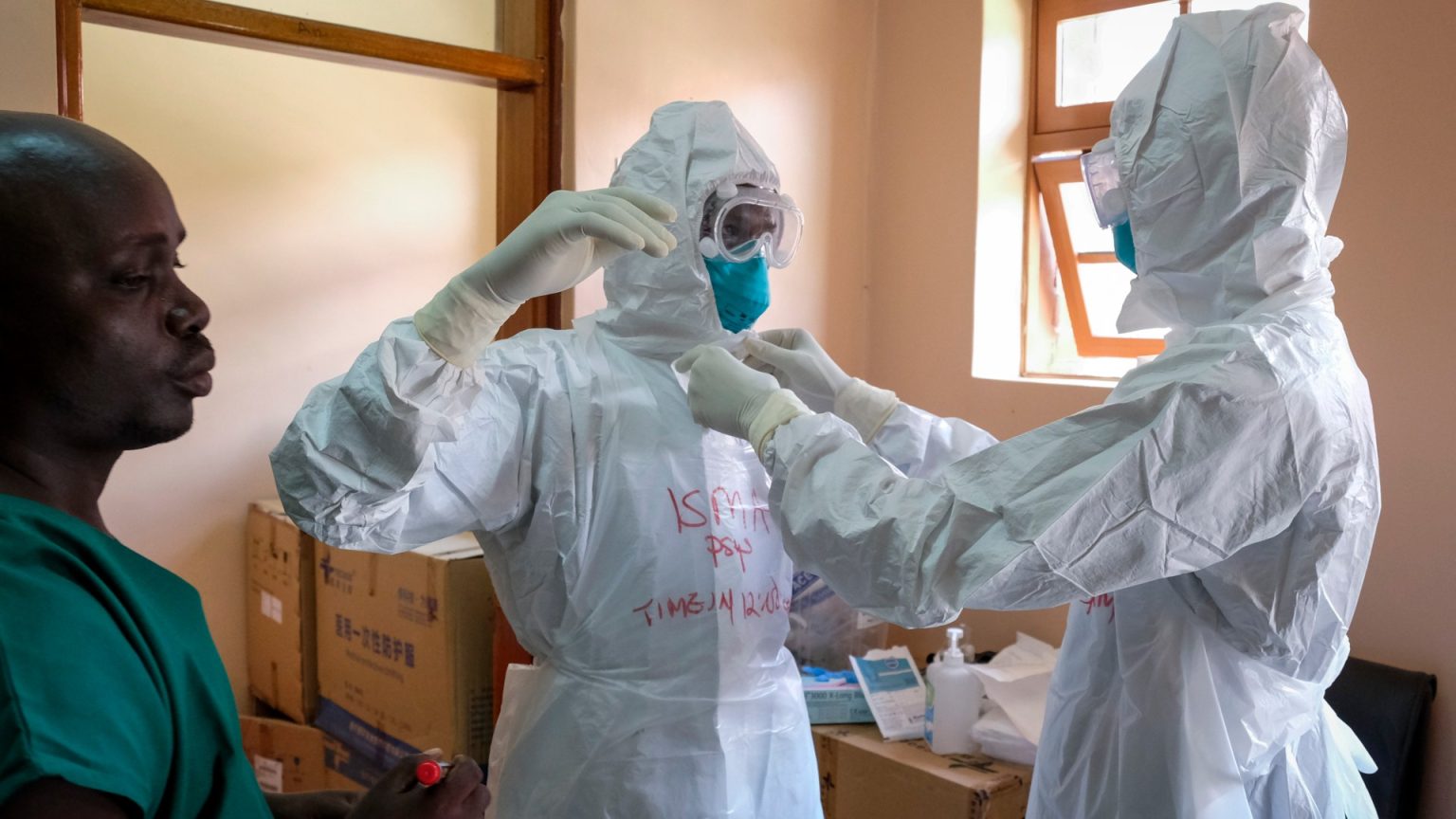The Enigmatic "Dinga Dinga" Disease in Uganda
A mysterious illness, locally dubbed "Dinga Dinga" meaning "shaking like dancing," has emerged in Uganda’s Bundibugyo district, affecting approximately 300 individuals, predominantly women and girls. The disease manifests with fever and intense body tremors, severely impacting mobility. While the exact cause remains unknown, health officials have sent samples to the Ministry of Health for analysis. Dr. Kiyita Christopher, the district health officer, confirmed that the illness is treatable with antibiotics, with patients typically recovering within a week. He emphasized that the disease has not spread beyond Bundibugyo and no fatalities have been reported. While some locals have resorted to herbal remedies, Dr. Christopher strongly advised against this practice due to the lack of scientific evidence supporting its efficacy, urging residents to seek treatment at established health facilities. The illness, first reported in early 2023, remains under investigation. One patient recounted a harrowing experience of paralysis accompanied by uncontrollable shaking, highlighting the distressing nature of the disease.
Unraveling the Mystery: Investigations and Patient Experiences
The "Dinga Dinga" disease is currently under intense scrutiny by health laboratories in Uganda, as authorities work tirelessly to identify the causative agent and implement appropriate control measures. The disease’s symptoms are particularly debilitating, causing affected individuals to experience uncontrollable shaking that impedes their ability to walk. The rapid onset and intensity of these symptoms are understandably causing concern among the local population. Health officials are collecting data and patient samples to gain a better understanding of the disease’s transmission dynamics, incubation period, and potential long-term effects. Patient testimonies, like the one shared by Patience Katusiime, provide valuable insights into the lived experience of those afflicted by the illness. Her account of paralysis and uncontrollable shaking underscores the severity of the symptoms and the urgent need for effective treatment strategies.
Navigating Health Crises: "Dinga Dinga" in Context
The emergence of "Dinga Dinga" follows recent health crises in the region, including the outbreak of a new mpox strain. The World Health Organization (WHO) declared the highly lethal clade 1b variant of mpox a global public health emergency in August 2023. The outbreak, initially concentrated in the Democratic Republic of Congo (DRC) and neighboring countries, including Uganda, raised international concern, prompting the WHO’s highest level of alert. The virus has since spread to other continents, with cases reported in Europe and Asia, including the UK. This backdrop of ongoing health challenges highlights the importance of robust surveillance systems and rapid response mechanisms to contain and manage emerging infectious diseases.
The Looming Threat of Disease X in the DRC
Adding to the region’s health concerns is the emergence of a mysterious illness in the DRC, termed "Disease X." This placeholder name signifies an unknown pathogen with the potential to trigger a global pandemic. The outbreak, which began in late October, has affected over 400 people, claiming the lives of 79, primarily children under 14. The diverse range of symptoms, including fever, cough, aches, and anemia, complicates diagnosis. While some individuals have tested positive for malaria, the involvement of other pathogens is suspected, and investigations are ongoing. The DRC’s existing health challenges, including malnutrition and low vaccination coverage, further complicate the situation, making children particularly susceptible to a range of infectious diseases.
Mounting Global Health Concerns: Mpox and Beyond
The global spread of the highly virulent mpox strain underscores the interconnectedness of global health security. The detection of cases in Europe and Asia, following the initial outbreak in Africa, highlights the ease with which infectious diseases can transcend borders, necessitating international collaboration and coordinated responses. The UK’s experience with the mpox outbreak, where multiple cases were identified within a single household in London, demonstrates the potential for rapid local transmission. The escalating concern surrounding mpox and the emergence of "Disease X" in the DRC underscore the need for continued vigilance and proactive measures to prevent and mitigate future pandemics.
Responding to Emerging Threats: Collaboration and Preparedness
Addressing the challenges posed by "Dinga Dinga," mpox, and "Disease X" requires a multi-faceted approach. Strengthening surveillance systems, both locally and globally, is crucial for early detection and rapid response. Investing in diagnostic capacity and developing effective treatment strategies are paramount. Equally important is addressing underlying health vulnerabilities, such as malnutrition and low vaccination coverage, particularly in resource-limited settings. International collaboration, including sharing information and resources, is essential to combat these emerging threats effectively. The international community must work together to enhance pandemic preparedness and response capabilities, ensuring that we are better equipped to face future health crises.











